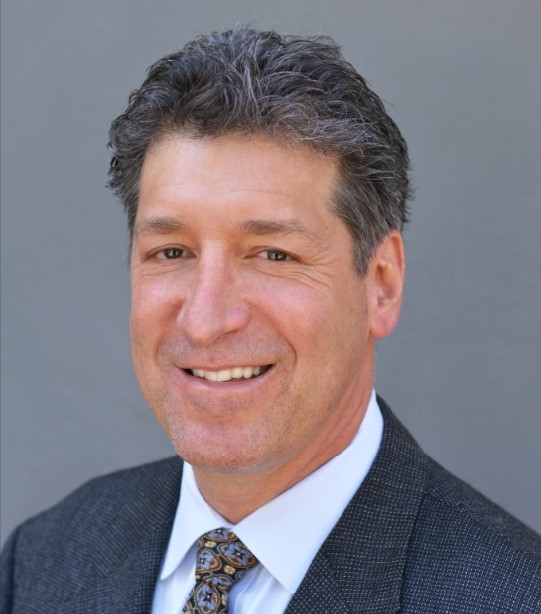The National Conflict Resolution Center is exploring the growth of “hatriotism” in the U.S. in its continuing national dialogue series, “A Path Forward.”
“Shared Differences: A Conversation about Anti-Semitism and Islamophobia in the U.S.” will focus on the mainstreaming of white supremacist thought and its effect on Muslim and Jewish communities and our democratic institutions. Featured speakers are Duke University Associate Professor Imam Abdullah Antepli and New York Times op-ed columnist Bret Stephens.
NCRC President Steven P. Dinkin said the NCRC will turn 40 in 2023 and its role and mission are to help people address instability, the sense of polarization that people are experiencing in society. NCRC does that through skilled communication, conflict resolution, skill-based training, conflict resolution services, mediation, conflict coaching, and through fostering discussion around very challenging issues.
“The latter is what brings us to a program we established in 2013, called ‘The Path Forward,’” he said. “Which started in the aftermath of the 2019 shooting at the Chabad of Poway Synagogue where John Ernest shot the rabbi and killed one of the congregants. As individuals looked into his background, it also turned out that he had started a fire and defaced an Escondido mosque. This tragedy was happening in our own community.”
Dinkin said it reached out to leaders across the nation that had experienced similar atrocities. Including the 2015 white supremacist terrorist mass shooting in Charleston, South Carolina, where nine African Americans were killed at the Emanuel African Methodist Episcopal Church, the 2018 Pittsburgh synagogue shooting at the L’Simcha Congregation which killed 11 people and injured 7, and brought these leaders together to answer the question, “What is the path forward? How did you heal as a community? How do we heal?”
“We learned lessons from them about being present, and how as a community you must step up and be engaged, and be proactive,” he said.
Dinkin said as a result, it launched “A Path Forward,” a series of community meetings, circle dialogues, conflict resolution training. He said subsequent to that there was the incident with the George Floyd tragedy where they brought in an expert panel, and the Jan. 6 attack on the Capital, where they brought in author and Harvard University professor Arthur C. Brooks. He said NCRC has been holding these national series and local community dialogues.
“The next in the series is about anti-Semitism and Islamophobia in the United States,” he said. “Shared differences. Looking at what the shared connections are, and how to navigate through this challenge we are facing as a society.”
Dinkin, who will moderate the event, said it had an “interesting panel” and wanted to identify an Islamic leader and a leader in the U.S. who has spoken about the rise in Antisemitism. The panel has Imam Abdullah Antepli, a senior fellow on Jewish-Muslim Relations at Shalom Hartman Institute in Jerusalem, where he founded and co-directs the Muslim Leadership Initiative. Antepli is also an associate professor at Sanford School of Public Policy, with a secondary appointment at the Divinity School. Joining him is The New York Times op-ed columnist, and Sapir editor-in-chief Bret Stephens, who previously worked at the Wall Street Journal where he was awarded a Pulitzer Prize, and as editor-in-chief of The Jerusalem Post.
Dinkin said through this panel, he hopes that people gain a better understanding of the current state of Islamophobia and anti-Semitism in society.
“People were very familiar with Islamophobia in the aftermath of 9/11, and soon after that, the attacks on Muslim communities in the United States was so prevalent,” he said. “Today, years later, much of the animosity and misconceptions about Islam and the Muslim community in our own cities still exist. Having a speaker talk about the state of Islamophobia today is so important. And it is the same thing with the levels of anti-Semitism in how that remains so prevalent in today’s society, and how attacks on the Jewish community have increased substantially in recent years. Understanding the current state of affairs with both of these religious groups, and then, understanding the commonality between the two.”
Dinkin said the organizational thinking on this is what is the connection, and where does it overflow, whether it is the Poway synagogue shooting or the recent July attack on the supermarket in Buffalo, New York where a white gunman killed 10 Black people and injured three others.
“When people looked into Payton Gendron, who perpetrated that attack, similarly, there was also anti-Semitic statements on his website,” he said. “Both incidences, there was mention of The Great Replacement theory, the White Genocide Conspiracy theory. Understanding that there are these kinds of connections, and then the last step is looking at what are the next steps forward: How do we combat this sense of Islamophobia and anti-Semitism?”
The in-person conversation will take place at UC San Diego Park & Market, 1100 Market Street, First Floor, in downtown San Diego. It’s free to attend and requires registration. Doors open at 5 p.m. The one-hour program will be livestreamed at 5:30 p.m. at NCRCevents.com. To learn more about the National Conflict Resolution Center and the Sept. 22 event visit NCRC’s website www.ncrconline.com














